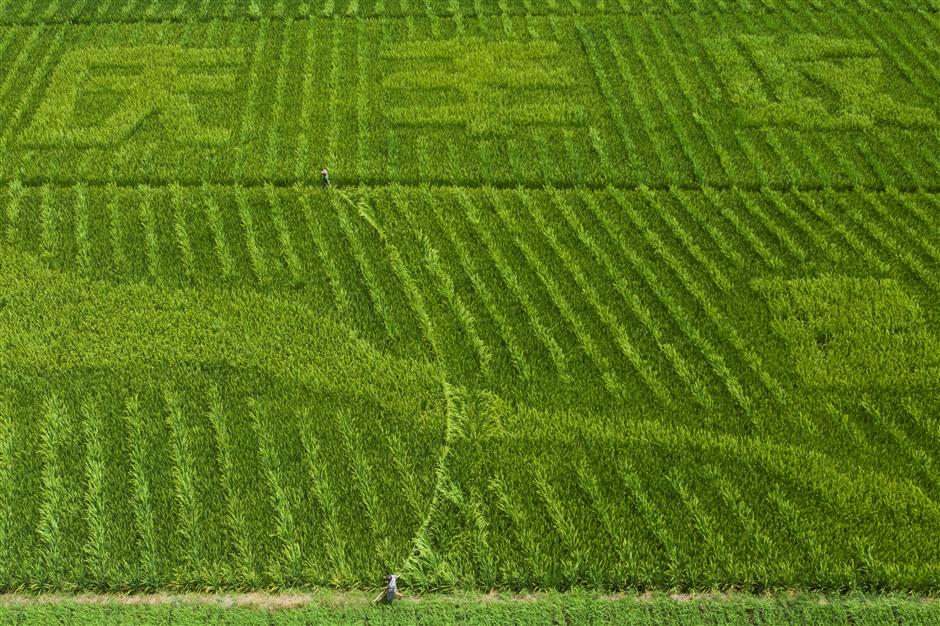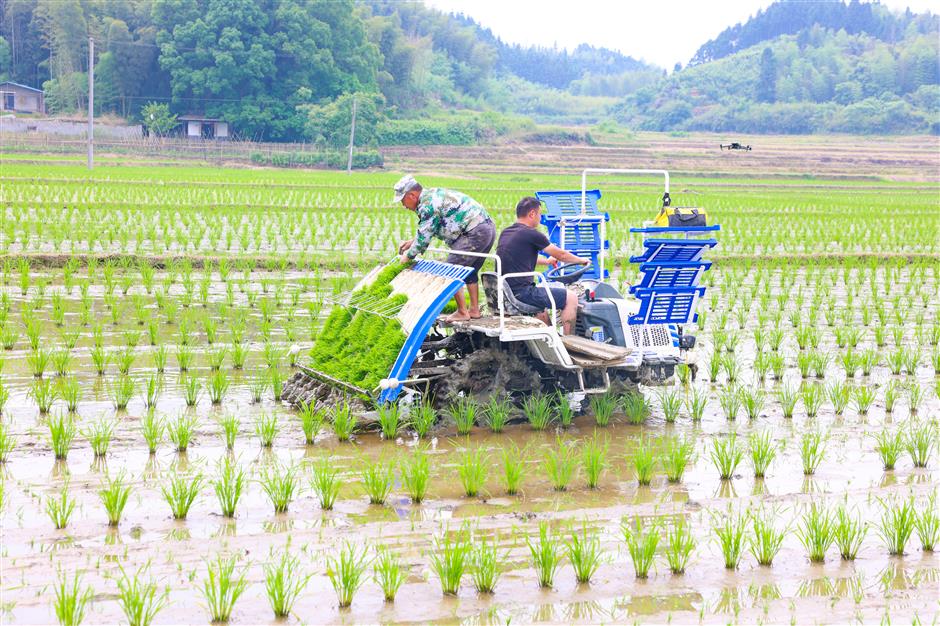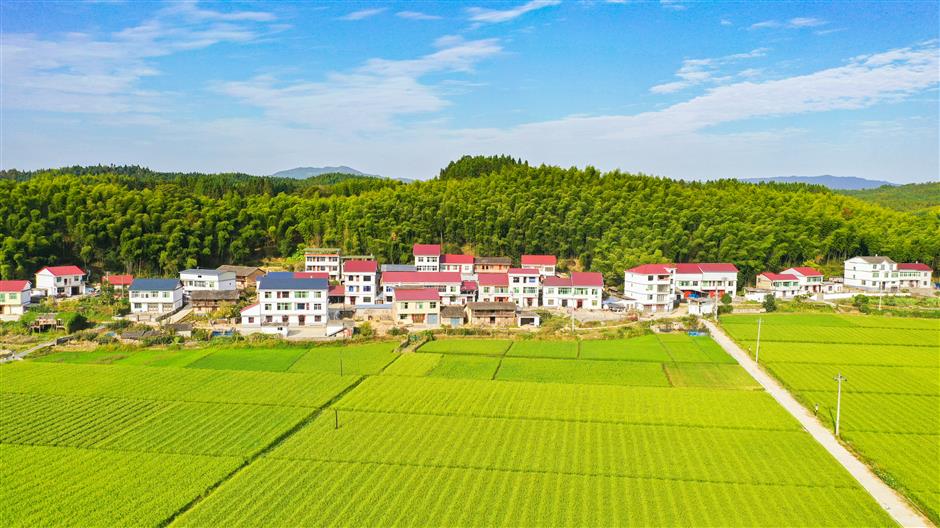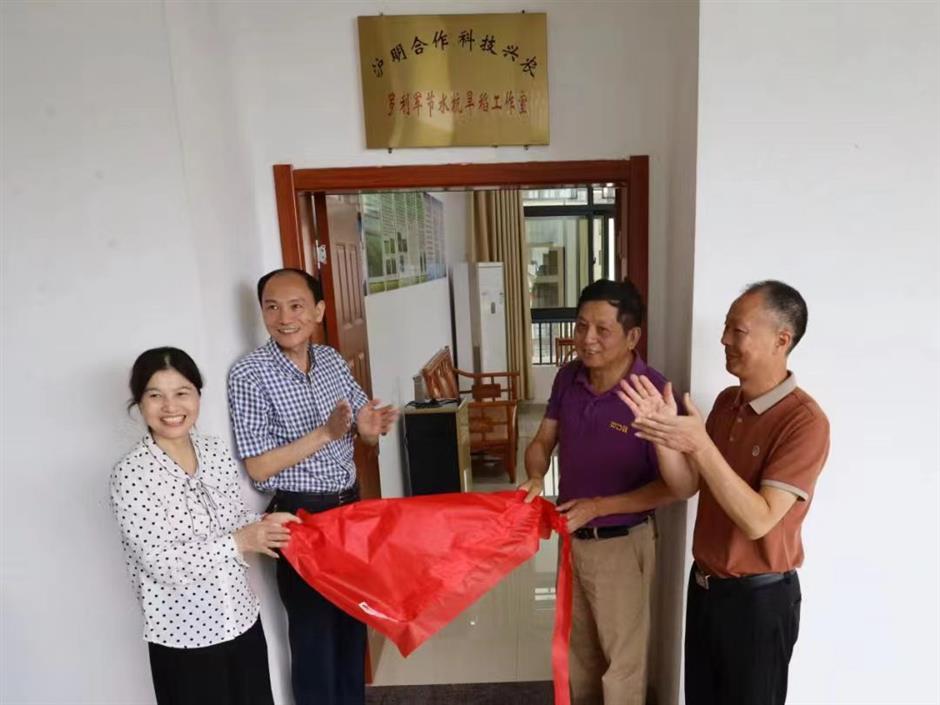今日上海
上海参与的杂交水稻项目提升三明市人民生活水平 - 2023年06月18日
Shanghai participates in hybrid rice project that improves livelihood in Sanming

Two farmers at opposite ends of a field pull a rope across rice plants to improve pollination.
There are many steps in traditional rice cultivation, but apparently two farmers gripping a nylon rope and standing far apart as they "drag" it through a paddy is not one of them.
Indeed, theirs is a unique procedure in the growing of hybrid rice seeds.
As they move along a ridge separating fields, the rope slowly combs through the flowering rice plants in a process aimed at effecting pollination.
These paddies yield grains are to be purchased by a seed company under a contract with farmers. The high-yielding hybrid seeds are then sold both domestically and abroad.
It all sounds so perfect, but there is a catch. Rice grown from these hybrid seeds can be used only for food, because they don't yield well if planted again.
Thus, farmers always turn to trusted seed companies to buy new seed for propagation.

Machinery is widely used to relieve the back-breaking work of planting rice sprouts.
China has been a pioneer in the development of hybrid rice. Scientist Yuan Longping (1930-2021), known as the "father of hybrid rice," laid the foundation with his discovery of the genetic basis of heterosis, or hybrid vigor, in rice in the 1960s. Previously, it was thought that heterosis was impossible in self-pollinating crops such as rice.
Cao Sizhou, an agricultural specialist from Fujian Tianli Seed Co, said the hybrid-rice seeds produced in Jianning County in the city of Sanming in Fujian Province are particularly good for regions suffering from water shortages because they are more tolerant to drought than other varieties.
Tens of thousands of hectares in Jianning are earmarked for cultivation of high-yielding hybrid rice seeds, thanks partly to enhanced cooperation between Shanghai and Sanming.

Hybrid rice seed fields dominate a village in Jianning County in northern Fujian Province.
Shanghai's role is not surprising. In 2004, the city produced the world's first hybrid rice.
Since this breed was not fussy about soil, was less dependent on rainfall and was easy to cultivate, it became very popular across China and beyond.
Mountainous Jianning county was specifically chosen as the cultivation site.
"It had great advantages," Cao said, pointing to the significant variation between daytime and nighttime temperature and humidity conducive to pollination. The undulating terrain amid woodlands also helped shield rice plants from seasonal typhoons.

Farmers celebrate the launch of a facility dedicated to disseminating hybrid technology, as part of the Shanghai-Sanming project.
Local farmers began cooperating in hybrid rice seed production as early as 1976, and the area has become the largest production base for hybrid rice seed in China, accounting now for about 10 percent.
Cao said it is important to create incentives for farmer to participate in the business. Ongoing guidance from specialists is also critical. In this case, the expertise often comes from the Shanghai Academy of Agricultural Sciences, which is renowned for its work on hybrid rice whose growth is less sensitive to lack of water.
Shanghai's special ties with Sanming date back to late 1950s, when 18 light industry enterprises and nearly 10,000 Shanghai workers and their families were moved to Sanming as part of efforts to ensure industrial safety in a volatile external situation.
Source: Shanghai Daily
